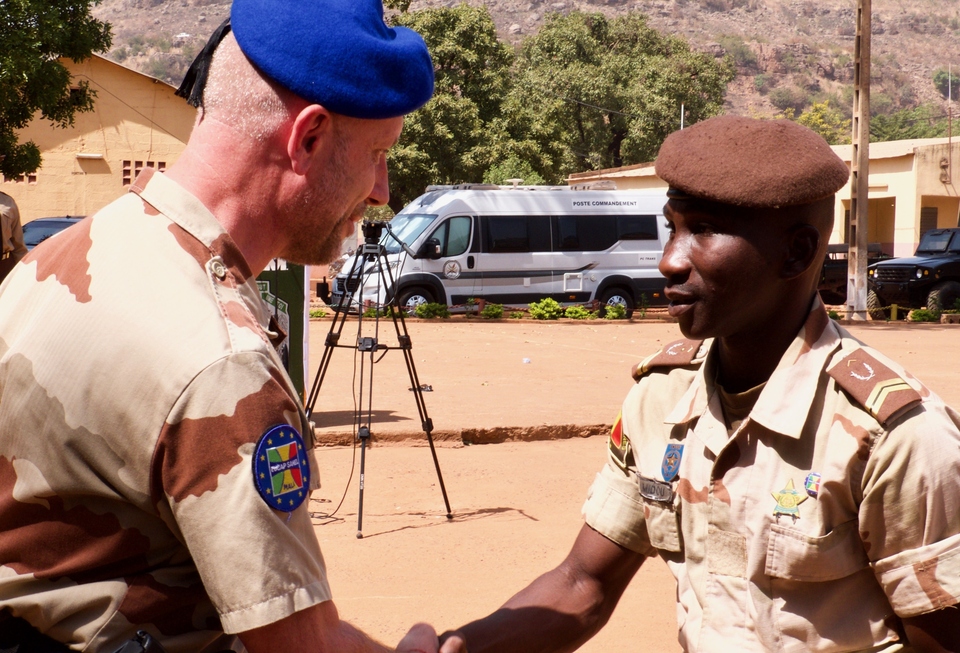Civilian Crisis Management
Civilian crisis management is a central pillar of the EU Common Security and Defence Policy (CSDP), which in turn is part of the EU’s Common Foreign and Security Policy (CFSP). The CSDP is an important instrument supporting the EU’s role as a global security provider.
Currently, the EU maintains twelve civilian missions in countries including Georgia, Iraq, Mali, Somalia, and the Central African Republic. The missions support conflict- or crisis-ridden partner countries and contribute to stabilisation and the prevention of these countries’ relapse into violence. Mirroring the multitude of intersecting challenges that missions tackle, mission staff consists of civilian experts, such as political, gender, and security sector reform advisors, as well as judges, police officers and specialists on hybrid threats, counterterrorism, and border management. In general, these experts are sent by Member States. The portfolios of these so-called “secondees” range from training host country police officers and helping to strengthen the judiciary and civil administration to advising on human rights or gender issues, just to name a few.
The operational environment of civilian crisis management missions is becoming increasingly complex and volatile. ‘Civilian crisis management missions’ is the term used by the EU, whereas peace-operations, peace-support operations, or field operations are used by other organisations such as the UN or the OSCE. The difference is purely semantic as there is no universal definition of these terms.
In response to this complex environment, Member States agreed in the 2018 Civilian CSDP Compact, to focus not only on policing, support to rule of law, to civil administrations as well as security sector reform and monitoring (the so-called Feira priorities), but also on new security challenges, including irregular migration, hybrid threats, cyber security, terrorism and radicalisation, and organised crime. It is important to remember, however, that civilian crisis management missions are only one tool among many with which the EU seeks to prevent and address conflicts. Thus, recognising the limits of civilian crisis management is necessary for most effective results.
In May 2023 a new civilian CSDP Compact was adopted in the context of strong concern about the emergence or escalation of conflicts around the EU as well as other challenges including the rise of revisionist actions, flagrant violations of internal law and human rights, democratic backsliding, the persistence of instability and transnational threats as well as climate change and its effects on conflicts and crises.
The new Compact includes 20 commitments to strengthen civilian CSDP. The Council and Member States aim to regularly review progress made and to fully deliver on the new Compact by early summer 2027.

Evaluating the effectiveness of civilian crisis management missions requires an agreed upon definition of a mission’s success. This includes identifying relevant indicators, as well as who should determine the latter (e.g., the host country; the EU; EU Member States seconding personnel).
Civilian crisis management missions represent a unique form of international assignments in which individuals – both contracted and seconded – are confronted with a new culture, challenging tasks, and a demanding, and at times dangerous, environment. Simultaneously, these individuals must always keep Edward Said’s warning in mind: “(...) history cannot be swept clean like a blackboard, clean so that ‘we’ might inscribe our own future there and impose our own forms of life for these lesser people to follow.”
